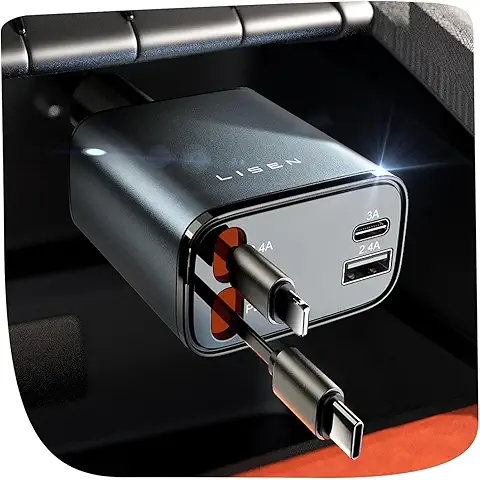Avoid Travel Scams: A Beginner's Guide to Booking a Safe and Scam-Free Trip


Traveling offers one of life’s greatest pleasures: exploring new destinations, experiencing diverse cultures, and making lasting memories. However, for beginners stepping into the world of trip planning, the process can feel overwhelming. From choosing flights and hotels to arranging tours and transportation, every decision requires attention to detail. Unfortunately, amid the excitement and endless possibilities, travelers must also navigate potential risks lurking in the industry. Among the most concerning are the various scams that specifically target unsuspecting tourists eager to explore the world.
This comprehensive guide aims to arm beginner travelers with essential knowledge to recognize, avoid, and protect themselves against the most common travel scams. With practical advice and real-world examples, you will be better prepared to enjoy a secure, scam-free, and stress-free journey. By the end of this article, you will know how to spot red flags, verify legitimate companies, and ensure your dream vacation remains just that a dream, not a financial nightmare.
Why Travel Scams Are So Common
Scammers prey on tourists for a very specific reason: travelers, especially those visiting a destination for the first time often let their guard down. Whether it’s the thrill of a new adventure, the language barrier, or a general unfamiliarity with local customs and laws, travelers are often more trusting than they would be in their home environment. This vulnerability makes them ideal targets for scammers who know how to exploit confusion, excitement, and inexperience.
For many travelers, particularly beginners, planning a trip involves a whirlwind of decisions: booking flights, choosing accommodations, planning excursions, and navigating foreign transportation systems. In the rush to enjoy the moment, people may miss subtle warning signs of fraud. First-time tourists may not know what a legitimate taxi license looks like or how to tell if an online booking platform is authentic. Some may feel too shy to question pushy tour operators or vendors for fear of appearing rude or disrespectful. Others simply assume they are safe because they are using what appears to be a professional service.
The digital age has made trip planning more convenient than ever, but it has also opened the door to a new breed of scam artists. Gone are the days when scams were limited to shady back-alley transactions or pickpockets working busy marketplaces. Today’s travel scams are often high-tech and difficult to detect at first glance. Fraudsters now operate fake booking websites that mimic real travel agencies with cloned designs, stolen branding, and even fake customer reviews. Some go as far as creating entire social media profiles or ads offering deals that never actually exist. Others launch phishing campaigns via email or text messages, tricking victims into entering personal or payment information into deceptive forms.
These scams are not only financially damaging; they can also ruin an entire vacation. Imagine arriving at your destination after a long flight only to discover that the hotel you booked doesn’t exist, or that the private driver you arranged is a scammer with no official credentials. In extreme cases, people lose thousands of dollars and face significant emotional stress.
To stay safe, it’s essential to develop a strong awareness of how travel scams operate. Understanding how these frauds work can help you spot suspicious behavior, verify the legitimacy of travel-related offers, and avoid falling into common traps. This knowledge is your first line of defense, both online and on the ground, and can mean the difference between a dream trip and a travel nightmare.
Common Travel Scams and How to Avoid Them
1. The "Free Vacation" Scam
The promise of a free vacation sounds too good to resist. Scammers often initiate contact through unsolicited phone calls, emails, or social media messages claiming you have won an all-expenses-paid trip. While the initial offer seems legitimate, hidden costs quickly emerge taxes, resort fees, travel insurance, and mandatory attendance at high-pressure sales presentations. In many cases, no real vacation exists; the scheme’s sole purpose is to collect your personal information or extract upfront payments.
How to protect yourself:
Always research any company offering free vacations. Check online reviews, verify their Better Business Bureau profile, and search for scam warnings. Remember the golden rule: if something sounds too good to be true, it probably is.
2. The Fake Travel Agency Scam
Fake travel agencies have become increasingly sophisticated, creating professional-looking websites and social media profiles to promote exclusive deals on flights, accommodations, and tours. Once payment is made, these fraudulent agencies disappear, leaving victims with fake confirmation emails and no actual reservations.
How to protect yourself
Book through well-known travel platforms or agencies with verifiable physical addresses and positive customer feedback. Confirm membership in reputable organizations like the American Society of Travel Advisors (ASTA) or the International Air Transport Association (IATA).

3. The Bait-and-Switch Accommodation Scam
Some listings advertise luxurious accommodations with appealing photos and exaggerated descriptions. Upon arrival, travelers find substandard lodging, missing amenities, or entirely different properties. In severe cases, the accommodation may not exist at all.
How to protect yourself:
Verify the property on multiple reputable platforms and read recent reviews from other travelers. Contact the hotel or rental agency directly to confirm your booking details. Look for clear cancellation policies and documented reservation agreements.
4. The Taxi Meter Scam
This common scam affects tourists worldwide. A taxi driver may claim the meter is broken or quote a flat rate far above the standard fare. Additionally, some drivers take unnecessarily long routes to inflate the final charge.
How to protect yourself:
Agree on the fare before starting your journey if the meter is unavailable. Research standard taxi rates in advance and use ride-sharing apps like Uber or Bolt, which offer price transparency. Many hotels also provide trusted taxi services for guests.
5. The Currency Exchange Scam
While traveling, exchanging money can expose tourists to fraudulent practices. Some unofficial kiosks promise excellent rates but include hidden fees, poor exchange rates, or even counterfeit currency.
How to protect yourself
Rely on ATMs inside banks or use official exchange offices with transparent fees. Familiarize yourself with the local currency’s appearance and current exchange rates. Avoid exchanging large sums in tourist hotspots where scams are more common.
6. The Expensive Tour Ticket Scam
Fraudsters posing as official agents sell tickets for attractions at inflated prices or provide counterfeits. Victims often realize too late, either at the entrance gate or when the ticket scans as invalid.
How to protect yourself
Purchase tickets directly from the attraction’s website, an authorized vendor, or your hotel concierge. Be cautious when approached by individuals selling tickets on the street or through unverified websites.
7. The Wi-Fi Phishing Scam
Public Wi-Fi networks in cafes, hotels, and airports are prime hunting grounds for cybercriminals. Scammers create fake networks designed to capture sensitive information, including credit card numbers and passwords.
How to protect yourself
Avoid conducting financial transactions on public networks. Utilize a reputable Virtual Private Network (VPN) to encrypt your connection and prioritize mobile data over public Wi-Fi whenever possible.
8. The Car Rental Damage Scam
Some dishonest rental agencies attempt to charge customers for pre-existing damages. Without proper documentation, travelers may find themselves liable for costly repairs.
How to protect yourself
Inspect the vehicle thoroughly, take photos and videos from multiple angles, and ensure all existing damage is documented in the rental agreement. Retain copies of all contracts and reports for future reference.
9. The Fake Police Officer Scam
In certain destinations, scammers impersonate law enforcement, claiming to check wallets for counterfeit bills or illegal items. During this interaction, they discreetly steal money or credit cards.
How to protect yourself
Never hand over your wallet. Ask to see official identification and suggest resolving the matter at the nearest police station. Remain polite yet firm, and do not allow yourself to be separated from your belongings.

10. The Forced Shopping Scam
Some organized tours include stops at specific shops where tourists are pressured to purchase overpriced goods. These shops often compensate tour operators with commissions, incentivizing these exploitative practices.
How to protect yourself
Research the tour itinerary and read reviews before booking. Opt for private or small-group tours that offer flexibility. Politely decline to participate in shopping excursions if they are not part of your plan.
Additional Tips to Protect Your Travel Investment
Book Through Reputable Sources
Always use well-known booking platforms or trusted travel agencies with strong reputations. Verify website security by looking for HTTPS protocols and secure payment gateways. Check for customer service availability and clear cancellation policies.
Research Thoroughly
Read reviews on multiple platforms, including TripAdvisor, Google Reviews, and Trustpilot. Look for patterns in customer feedback, especially complaints about fraud or poor service.
Understand Payment Protections
Use credit cards for travel purchases, as they often offer fraud protection and the ability to dispute charges. Avoid wire transfers or cash payments for bookings, which offer little recourse if things go wrong.
Trust Your Instincts
If a deal feels rushed, overly complicated, or suspiciously cheap, it warrants skepticism. Scammers prey on urgency and excitement; taking your time to verify details can save you money and frustration.
Stay Informed About Common Scams
Each destination may have its unique set of common scams. Research local warnings, read recent traveler reports, and stay updated through official travel advisories. Awareness is your first line of defense.
Travel Smarter, Not Just Safer
The joy of travel lies in discovery, relaxation, and the creation of lifelong memories. But in a world where fraudsters constantly adapt to new technologies and tactics, being informed is just as important as being adventurous. While it’s true that travel scams are a real threat, your trip doesn’t have to be defined by fear or hesitation. With thoughtful preparation, heightened awareness, and a commitment to informed decision-making, you can explore even the world’s busiest tourist hotspots with confidence and peace of mind.
Before you book your next trip, take time to research not just where you’re going, but how scams operate in that region. Is there a history of counterfeit taxis at the airport? Are tourists often targeted by fake tour operators? Are there warnings about cloned websites for local attractions or accommodations? The more you know in advance, the better equipped you’ll be to spot red flags when they appear.
Vigilance should be part of your travel toolkit, alongside your passport and itinerary. Learn to recognize too-good-to-be-true offers, double-check reviews and vendor credentials, and use trusted platforms for booking flights, hotels, and excursions. Don't be afraid to pause and verify information if something feels off. And always prioritize safety over convenience. A few extra minutes of scrutiny could save you from days or weeks of stress, financial loss, or even danger.
Being cautious doesn't mean being paranoid. It means empowering yourself with knowledge and resources that allow you to enjoy your trip without worry. Use secure payment methods, enable travel alerts with your bank, save emergency contacts offline, and share your itinerary with a trusted friend or family member. These small steps can make a major difference if something goes wrong.
Ultimately, the best defense against travel scams is education. The more you learn about the ways fraudsters operate, the more resilient and scam-proof you become. By staying alert, questioning the legitimacy of unsolicited offers, and trusting only verified sources, you dramatically reduce your risk.
Travel is one of life’s greatest privileges and with the right balance of excitement and caution, you can embrace it fully. Don’t let the fear of scams steal your joy or hold you back from exploring the world. Instead, travel smart, stay informed, and experience everything your destination has to offer with security, confidence, and a sense of adventure. Safe travels, and may every journey be as rewarding as it is unforgettable.








